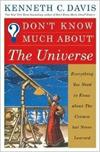
This Perfect Day
1 journaler for this copy...
I recently watched an old(-ish) Bollywood movie called Baazigar that I came to learn was an adaptation of Levin's original "A Kiss Before Dying". I went on to watch the Robert Wagner film (which was ok) and then read the original source which was the 1956 novel. I ended up liking the Levin novel so much that I wanted to explore more of his work. I was familiar with a lot of his other commercial successes, so when I saw he had written a dystopian sci-fi type novel (that I had never previously heard of) I got very excited to pick it up. "This Perfect Day" had been written in 1969 and somewhere along the way had gone out of print; that is until it was reprinted in 2010. I bought it as soon as I found out about it and started reading it soon after it was delivered.
Unfortunately, reading "Day" in 2017, I rationalized at least one reason why it had been out of print -- I felt it didn't stand up to the test of time -- it seemed dated for trying to be futuristic. It also had many little hints of misogyny thrown in and the more I read, the more bothered I was by it.
In Levin's future, the four societal founders (Christ, Marx, Wood and Wei) were worshiped by the people; people whose complete needs were taken care of. Almost everyone in the society was fine with this world, and it did seem pretty utopian compared to the way impoverished, oppressed or violently scorned people live today. Everyone had good health, financial security, a lack of physical and emotional suffering, and was a practically guaranteed 62-years on Earth. The people didn't even know they had given up their personal freedoms to Unicom, the computer of unification (Thank Uni).
The society that evolved was a veritable human monoculture, genetically modified with a strongly Asian physical influence. Everyone was very similar, that is, except our "hero", Chip. Chip was different from the start. Chip (a nickname for "Chip off the old block" that was given to him by his grandfather), was born with one eye a different color from the other, just as his great-great-grandfather had, according to Grandfather. Additionally, even as a child, Chip asked "what if" questions of an individualistic nature: "What if we could choose for ourselves what our vocation should be?"
Of course, Chip grew up to eventually join a Logan's Run type of resistance against Uni.
Chip as a character was okay, but not my favorite. But then I actually got tired of the setup and took issue with some parts of the presentation I thought were belittling to women, and gave up on the book before the 1/2 way point. The rape-as-love scene did me in. Ugh.
This book was actually better written both structurally and grammatically than a lot of novels I've been coming across lately. Part of my trouble with it may have been because I was so excited for it; I built it up in my mind to be so good. If I had gone in with lower expectations, perhaps I would have ultimately given it a higher star rating. That said, I have certainly not given up on Levin just because of this one book; but still this one I will be giving away. Perhaps the next reader will have more patience with Levin's portrayl of women than I.
Unfortunately, reading "Day" in 2017, I rationalized at least one reason why it had been out of print -- I felt it didn't stand up to the test of time -- it seemed dated for trying to be futuristic. It also had many little hints of misogyny thrown in and the more I read, the more bothered I was by it.
In Levin's future, the four societal founders (Christ, Marx, Wood and Wei) were worshiped by the people; people whose complete needs were taken care of. Almost everyone in the society was fine with this world, and it did seem pretty utopian compared to the way impoverished, oppressed or violently scorned people live today. Everyone had good health, financial security, a lack of physical and emotional suffering, and was a practically guaranteed 62-years on Earth. The people didn't even know they had given up their personal freedoms to Unicom, the computer of unification (Thank Uni).
The society that evolved was a veritable human monoculture, genetically modified with a strongly Asian physical influence. Everyone was very similar, that is, except our "hero", Chip. Chip was different from the start. Chip (a nickname for "Chip off the old block" that was given to him by his grandfather), was born with one eye a different color from the other, just as his great-great-grandfather had, according to Grandfather. Additionally, even as a child, Chip asked "what if" questions of an individualistic nature: "What if we could choose for ourselves what our vocation should be?"
Of course, Chip grew up to eventually join a Logan's Run type of resistance against Uni.
Chip as a character was okay, but not my favorite. But then I actually got tired of the setup and took issue with some parts of the presentation I thought were belittling to women, and gave up on the book before the 1/2 way point. The rape-as-love scene did me in. Ugh.
This book was actually better written both structurally and grammatically than a lot of novels I've been coming across lately. Part of my trouble with it may have been because I was so excited for it; I built it up in my mind to be so good. If I had gone in with lower expectations, perhaps I would have ultimately given it a higher star rating. That said, I have certainly not given up on Levin just because of this one book; but still this one I will be giving away. Perhaps the next reader will have more patience with Levin's portrayl of women than I.
Given to a friend in Laredo
 This book is in a Controlled Release!
This book is in a Controlled Release!







